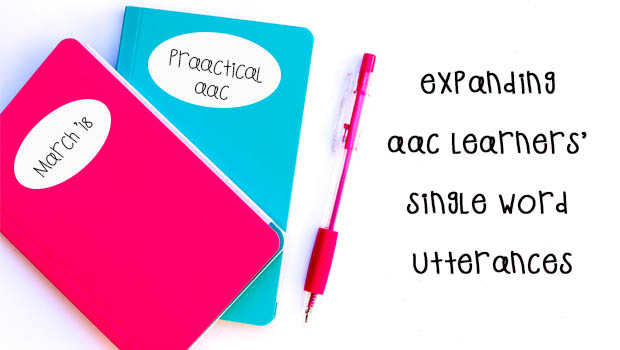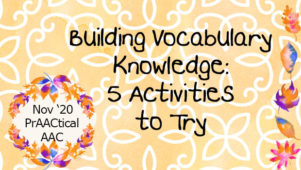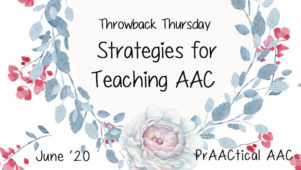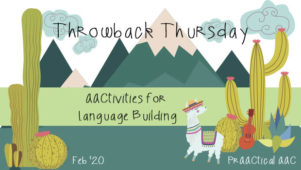Expanding AAC Learners’ Single Word Utterances

Know any learners like these?
- Jacob takes his teacher over to the snack cupboard and uses his SGD to say ‘cracker.’
- Mara watches her friend throw a book and signs ‘angry.’
- Elisheva finishes her drink and uses a communication book to say ‘more’
Some AAC learners linger at the single word level for far longer than they need to. One of the strategies that we use to help them move forward is to expand on their utterance and build on their word to model a 2-word sentence. ‘Cracker’ becomes ‘Want cracker.’ ‘Angry’ is built into ‘Shoshana’s angry.’ ‘More’ turns into ‘more milk.’
Sounds simple, right? Well, the concept certainly is, but it’s easy to get stuck or draw a blank when trying to do these sorts of expansions in therapy sessions, classroom activities, or daily routines. If you find your team forgetting to expand the learners’ single word utterances, some examples of HOW to create good expansions might be helpful. Here are some ideas to get us started.
Expansions for Nouns (e.g., train, Mom, school)
- Add a pronoun (e.g., his train, your Mom, my school)
- Add a verb (e.g., train goes, love Mom, like school)
- Add a descriptor (e.g., long train, nice Mom, big school)
- Add a determiner (e.g., this train, all Moms, that school)
- Add an interrogative (e.g., which train, whose Mom)
Expansions for Verbs (e.g., eat, go, know)
- Add a pronoun (e.g., I eat, you go, know it)
- Add another verb (e.g., will eat, did go, should know)
- Add a descriptor (e.g., eat later, go slow, never know)
- Add a noun (e.g., eat bread, go home, Jenna knows)
- Add a determiner (e.g., eat that, this goes, know that)
- Add an interrogative (e.g., What did she eat? Where should we go? How do you know?)
Expansions for Descriptors (e.g., blue, big, fast)
- Add a noun (e.g., blue cup, big girl, fast car)
- Add a verb (e.g., go fast)
- Add another descriptor (e.g., little blue block, big new truck, fast red car)
- Add a determiner (e.g., that is blue, these are big)
A few caveats to keep in mind.
- In general, try to add only a word or two when you do expansions. That provides a little new information without being overwhelming.
- Try to use grammatically correct sentences when you expand utterances. This is very hard to do with short sentences, but do your best to use the correct verb conjugation (e.g., he knows) and avoid telegraphic speech (e.g., ‘these are big’ rather than ‘these big’).
Do you have some tried and true suggestions for expanding from single word utterances into 2-word sentences? We’d love to hear about them.
Filed under: Featured Posts, PrAACtical Thinking
Tagged With: expansions, language intervention
This post was written by Carole Zangari




